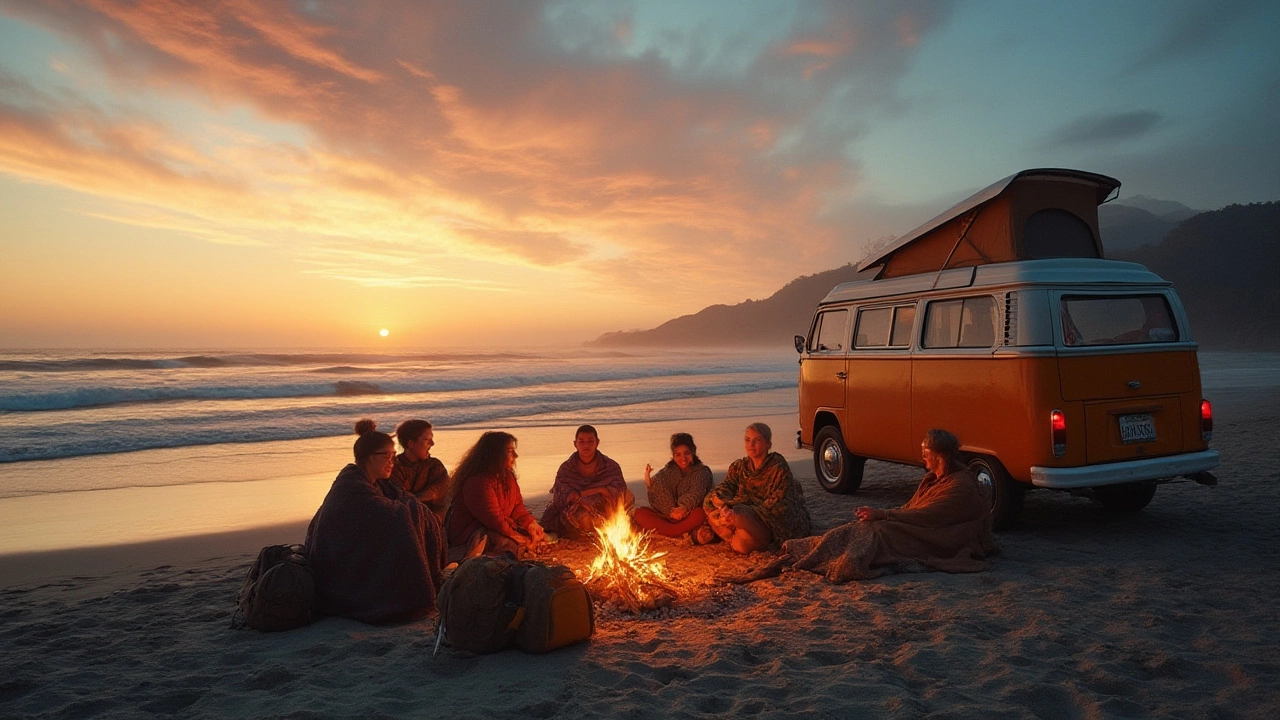Legal Camping in California: What’s Allowed, Where to Park, and Smart Tips
California’s coastline, forests and deserts make it a camper’s dream, but the rules can feel like a maze. Before you pull over, know which spots are actually legal, what the local signs mean, and how to avoid a ticket or a tow.
Roadside and Street Sleeping – What’s Permitted?
Most cities treat the road shoulder as public property, which means you can’t just park and sleep there unless a sign says otherwise. In places like Los Angeles or San Diego, “No Overnight Parking” signs are common, and breaking them can lead to a fine. Look for designated rest areas or truck‑stop parking lots – they’re designed for short stays and usually allow a few hours of sleep. If you’re on a highway, pull into a rest area with a restroom; many allow 8‑hour stays for travelers.
Beach Car Camping – The Do’s and Don’ts
California’s beaches are tempting spots for a night under the stars, but each county has its own rules. In Sonoma County, you can park on the street near the beach for a night if there’s no “No Overnight Parking” sign. In Santa Cruz, most beach parking lots close at sunset, and overnight stays are prohibited. Always check the local city or county website, or simply drive around the lot – if the signs say “No Overnight Parking” or “24‑hour Parking Only,” pack up. When you find a legal spot, keep the lights off, stay quiet, and be ready to move if a patrol shows up.
For a safer bet, head to state parks or national forests that allow dispersed camping. In the Sierra Nevada, certain forest roads let you park overnight as long as you follow Leave No Trace principles and stay under the fire limit. Just remember you’re still on public land – no tents on private property without permission.
Boondocking (dry camping) is another popular option. Walmart parking lots across the state often welcome RVers for a night, but it’s good etiquette to ask the store manager and keep a low profile. Some larger retailers, like Costco, have stricter policies, so a quick call can save you embarrassment.
If you’re unsure about a spot, use these quick checks:
- Read every sign – “No Overnight Parking” trumps any vague “Park at Your Own Risk.”
- Look for marked “RV Parking” or “Rest Area” signs.
- Check the curb color: red or yellow typically means no stopping.
- Ask a local business or police officer if the area is okay for an overnight stay.
Don’t forget safety. Keep valuables out of sight, lock your doors, and have a plan if you need to move quickly. A small flashlight, a blanket, and a portable charger are all you need for a comfortable night.
Bottom line: legal camping in California is doable if you pay attention to signs, respect local rules, and pick spots meant for overnight stays. With a bit of homework, you’ll enjoy the Golden State’s beauty without the hassle of fines or a tow.
-
 VIEW POST
VIEW POSTFree Beach Camping in California: Where and How to Go Wild Camping by the Coast
Jul, 17 2025|0 CommentsCurious about free beach camping in California? Discover where it’s actually possible, the challenges, best hidden spots, legal risks, and realistic tips for your next coastal campout.